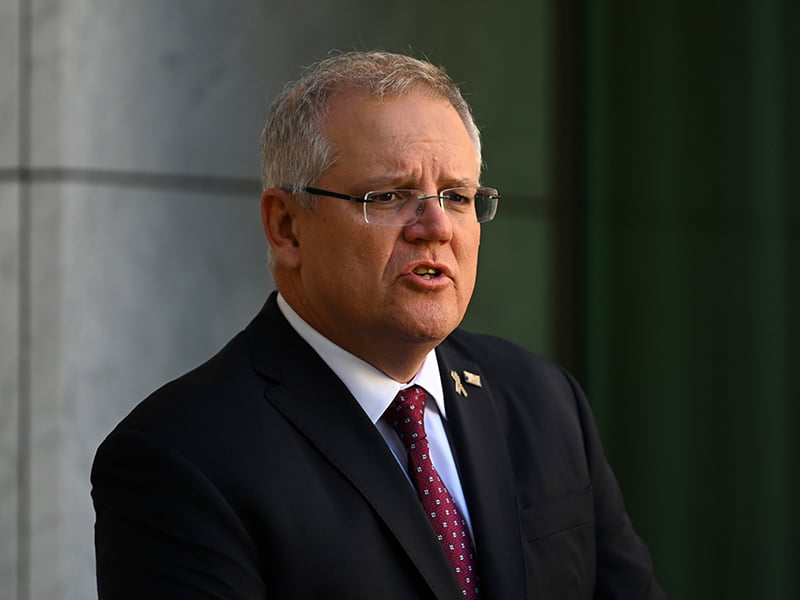Semiconductors, agricultural chemicals and personal protective equipment have been named by the Prime Minister among seven new supply chain priorities for more market development with like-minded nations.
These supply chains are now considered “important to the national interest” and will be prioritised as part of efforts toward a more resilient economy Scott Morrison said, while pushing back on calls for government to “build back better” in the post-pandemic era.
Speaking at an AFR Business Summit on Tuesday morning, Mr Morrison said his government was not it the “build back better camp”, amid calls for a rethink of industry policy around the world because of COVID-19 disruption.

He instead advocated for a return to “business-led” economic growth, which had seen the economy grow for nearly three decades prior to the pandemic.
“This was unmatched by other advanced economies, both in terms of duration and rate of growth,” Mr Morrison said. “That’s why, frankly, I’ve never really been in the build back better camp.”
“Our model of economic management and business-led economic growth has been world-class, it doesn’t need to be replaced by some government-centred reimagination of global capitalism.”
Labor has made manufacturing and sovereign capability a key part of its policy, promising to establish a $15 billion National Reconstruction Fund jointly funded with the private sector should it win government in two months.
Shadow minister for industry and innovation Ed Husic has advocated for governments to reconsider a traditional reluctance to “pick winners” in Industry policy because of vulnerabilities exposed by the pandemic and Australia’s continued slide down economic complexity and self-reliance rankings which started long before COVID-19.
The Coalition’s centrepiece economic recovery policy has been its $1.5 billion Modern Manufacturing Strategy, which includes government assistance to manufacturers in six priority areas and increasing supply chain resilience and diversity.
The programs have struggled to get money into the hands of manufacturers, but several major announcements are expected before the May election would enable large manufacturing projects that may otherwise have struggled to get off the ground.
The federal government also gave Australian multinational Incitech Pivot $29.4 million late last year to increase domestic production of AdBlue during a global shortage, narrowly avoiding major disruptions to the transport sector, but not changing the company’s intention to shut the plant this year.
Mr Morrison told the business summit these were examples of “targeted and sensible” assistance, rather than government overreach.
“We’re not overreaching our mandate. We’re not engaging in the building back better rhetoric. We’re just doing what needs to be done in a very targeted and sensible way.”
There would be more strategic support coming for seven new categories of supply chain vulnerabilities, which the Prime Minister linked to national security.
“We’ve identified seven initial categories for attention which were considered important to our national interests and they are as follows: semiconductors, agricultural chemicals, water treatment chemicals, telecommunications equipment, plastics, pharmaceuticals, and personal protective equipment — PPE.”
The Prime Minister said Australia needs more “trusted supply chains, not just efficient ones” and would increase collaboration with like minded nations, particularly members of the Quad group, which are currently mapping some of these supply chains.
“In this new era, we can’t just be thinking about just in time supply, we need to be thinking about a just in case model which supports greater diversification and larger inventories of key goods,” the Prime Minister said.
“Trusted partners, of course, [are] critical and that is the world we’re living in now. And we all know that supply chain disruptions are lower when we plan and we prepare for them.”
Do you know more? Contact James Riley via Email.

